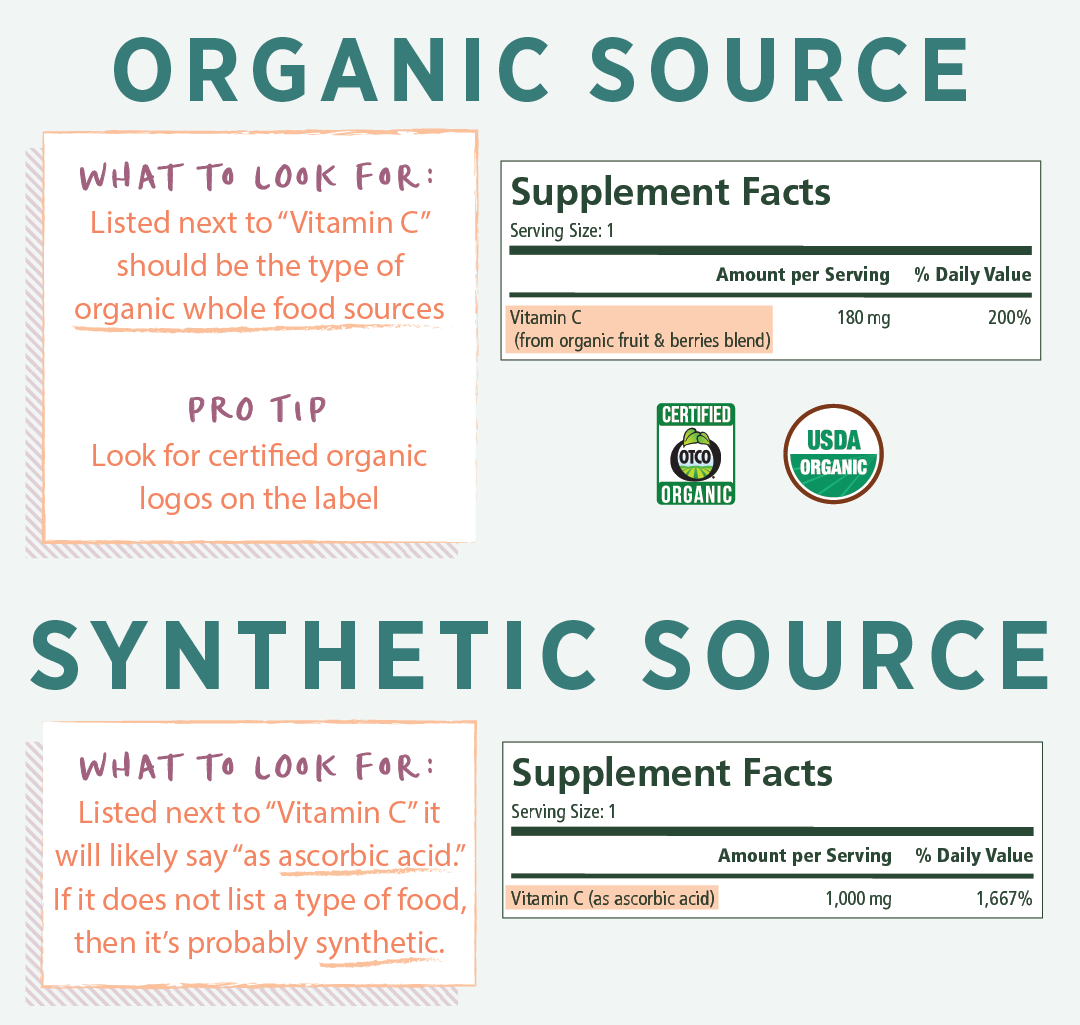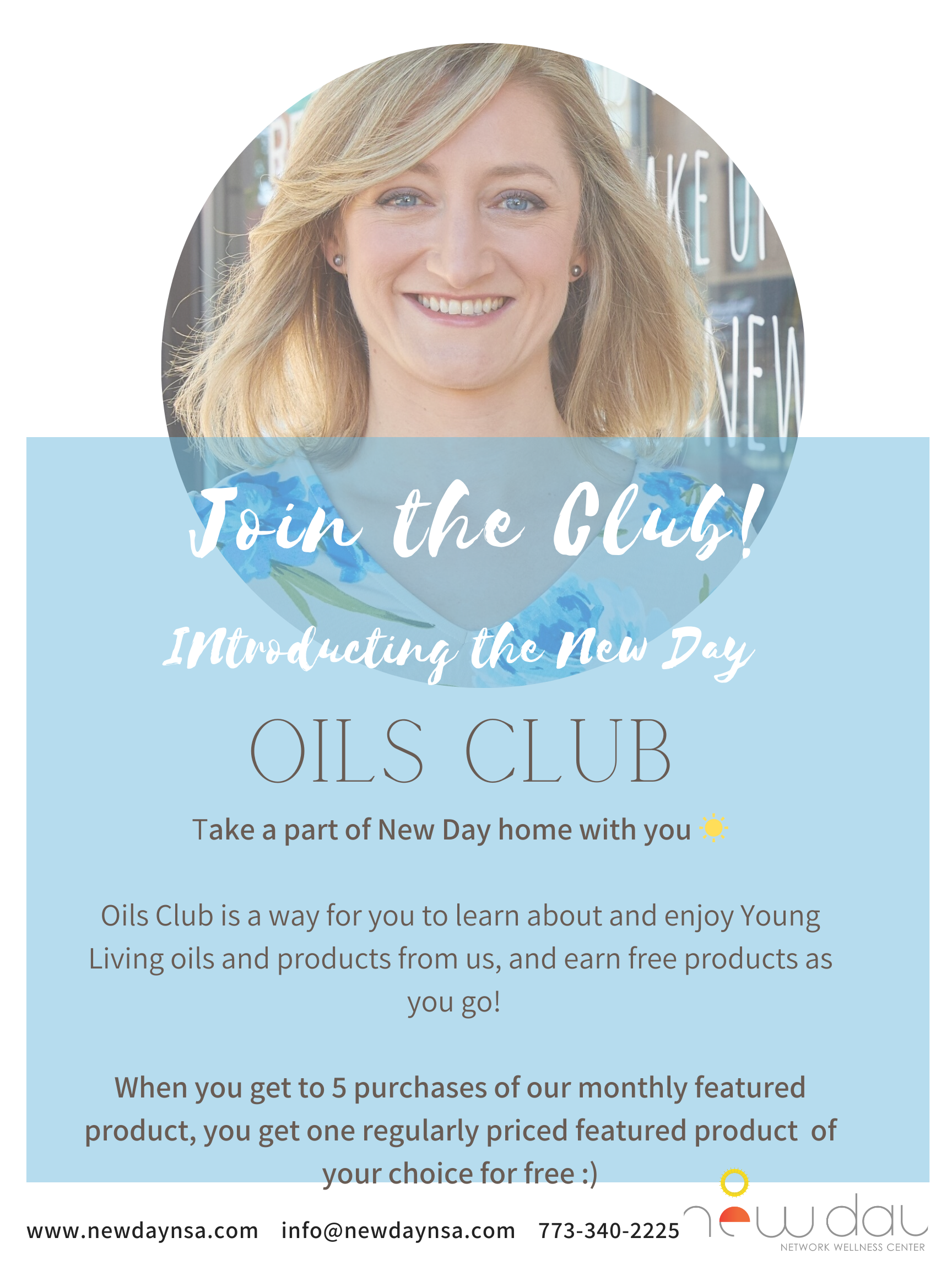The lowdown on vitamin C

Different types and more
Good morning, New Day!
I created “Oils Club” to have an organized way of featuring wellness products that I recommend and have gotten good results from (and rewarding you for doing so!)
This month, as part of our theme “Give your body what it needs” we are featuring 3 very important nutritional products for immune function, Vitamin D, Vitamin C, and Echninacea.
I’ve blogged quite a bit already about the importance of Vitamin D, but what about Vitamin C?
I’ve been using the Pure Synergy formula we are featuring at New Day for about a year, on and off, and now definitely ON with the increased needs for optimal immune system function.
I think the biggest question that I’d have if I were you is why to buy one type or brand of Vitamin C over another.
After all, when you can buy super cheap “Daily C” and the like from Walgreens, etc, why pay more for a higher quality product?
Not to worry, I’ve dug up some great information for you to consider!!

This is an excerpt from an informative blog I came across on the Pure Synergy Website (and you can read the whole article here):
Synthetic Ascorbic Acid
Vitamin C, also called ascorbic acid, was discovered in 1912, isolated in 1928, and first synthesized in 1933. By the 1960s, China was mass producing the synthetic version of this vitamin, and the vast majority of vitamin C supplements you’ll find in the marketplace are of this cheap, chemically-made form.
Often synthetic ascorbic acid is derived from genetically modified corn and processed with a host of chemicals such as acetone (yes – just like nail polish remover). Not only that, as it says in its name, ascorbic acid is acidic, and people with sensitive stomachs often don’t tolerate this form of the nutrient.
Although synthetic ascorbic acid is chemically identical to naturally occurring vitamin C, there are significant differences that set them apart. More on that in a moment.
Ascorbic Acid with Bioflavonoids
Bioflavonoids, or flavonoids, are natural compounds found in plants. Most vitamin C-rich fruits and vegetables are full of these beneficial compounds. Since they are antioxidants, just like vitamin C, they are thought to improve the efficacy of the supplement.
Unfortunately, the majority of vitamin C supplements with bioflavonoids are simply synthetic ascorbic acid with some flavonoids sprinkled in. They are often marketed as “natural.” However, when a vitamin is marked “natural,” it only has to include 10% of actual natural plant-derived ingredients. The other 90% can be synthetic — as is often the case with these types of supplements.
Whole-Food Vitamin C
All of the C supplements above are made with synthetic ascorbic acid as their base ingredient. Only whole-food vitamin C supplements are derived strictly from plants. In the case of Pure Radiance C®, vitamin C is derived from 11 of the most vitamin C-rich fruits and berries that nature has to offer, including organic camu camu, acerola cherries, and rose hips. This yields a 100% natural vitamin C, free of GMO corn or synthetic ascorbic acid.
Why is this important? Because whole foods contain so much more than just ascorbic acid. Natural ascorbic acid is always connected to a multitude of other compounds wherever it is found in nature. Many of the health benefits we associate with vitamin C come from not only ascorbic acid but also from the synergistic interaction of numerous phytonutrients including bioflavonoids, polyphenols, catechins, anthocyanins, rutin, and enzymes.
How Can You Tell If a Supplement Is from Whole Foods?
Sadly, many dietary supplement companies practice deceptive marketing tactics by labeling vitamins as “natural” when they are anything but. So, an important question must be asked: how can you tell organic vitamin C from the synthetic forms?
Answer: you have to carefully read the labels!

When you look at the supplement facts panel on the label, next to the words “Vitamin C,” in parenthesis, it will say what form the vitamin is in. Most of the time you’ll see ascorbic acid or a mineral ascorbate like calcium ascorbate or sodium ascorbate.
If the vitamin C is derived from an organic food source, though, it will list what the food source is. On the Pure Radiance C label for example, it says “Vitamin C (from organic fruit & berries blend).” It then lists all of the organic fruits and berries that were used to yield the nutrient.
Don’t Forget Organic
There’s one last important thing to keep in mind. If your vitamin C supplement is made from fruit, it is certainly natural. But if that fruit was grown using pesticides and herbicides, it will still be full of chemicals. To make absolutely certain you are getting the most pure and natural vitamin C available, it should not only be made from whole-foods, it should also be certified organic and have the USDA Organic seal on the label.
Pure Radiance C is made from 11 organic fruits and berries. No chemicals. No synthetics. No nonsense. Plus, it’s easy on your stomach with no acidity. It just doesn’t get better than that.

There is also a VERY in-depth article with information from Dr. Rhonda Patrick about the researched benefits of Vitamin C on Dr. Mercola’s website.
(Note, Mercola advocates taking Liposomal Vitamin C, which I personally do not take).
Here are some gems from that article:
- Vitamin C, even in small quantities, protects proteins, lipids and even DNA and RNA in your body from reactive oxygen species that are generated during normal metabolism as well as due to toxin exposure
- Vitamin C also acts as an antioxidant within your cells, helping to protect immune cells from incurring damage, and may promote the production of interferon, which helps defend against viruses
- Vitamin C’s anti-cold effects are among its most-studied uses, and research suggests that using vitamin C prophylactically as well as therapeutically at the onset of cold symptoms may reduce symptoms and cold duration
- Due to vitamin C’s antioxidant properties, it may help decrease the risk of neurodegenerative conditions like Alzheimer’s disease, Parkinson’s disease, Huntington’s disease and multiple sclerosis because it reduces oxidative damage
You can click here for the full article (you will probably need to sign up for a free account with mercola.com to read it though).
Our theme right now at New Day is “Give your body what it needs”!
Whether it’s chiropractic, exercise, fresh air, loving thoughts, and/or a kale salad, the orientation is the same; an inside-out approach to giving our bodies what they need to be healthy is THE BEST defense/offense for your health!
This month our Oils Club featured products are very VERY special.
We have Vitamin D, Vitamin C, and Echinacea!


Grab your Vitamin C from Pure Synergy at New Day, before they’re gone (we have 3 left!)
We also have several Vitamin Ds and 2 Echinacea’s remaining.


